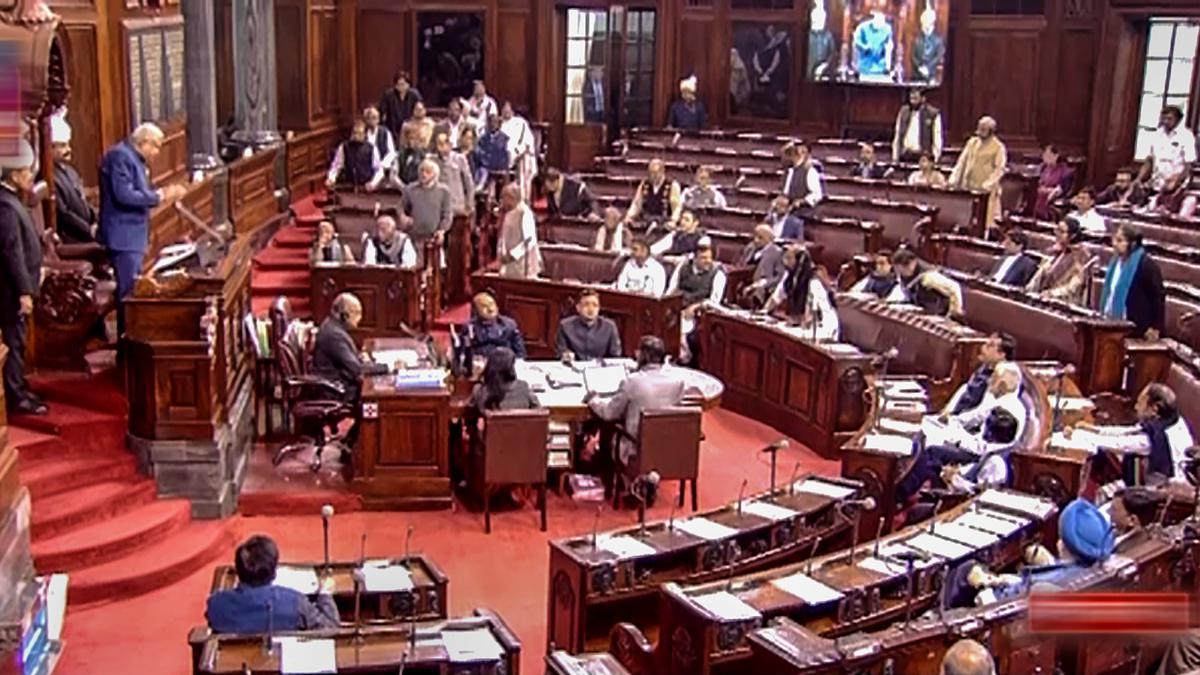
Explained | Parliamentary privilege and punishment in case of breach Premium
The Hindu
As the Committee of Privileges of the Rajya Sabha investigates the alleged breach of privilege by 12 Opposition MPs, we take a look at the concept of Parliamentary privilege and punishment in case of breach.
The story so far: Earlier this week, Rajya Sabha Chairman Jagdeep Dhankhar directed a parliamentary committee to probe the alleged breach of privilege by 12 Opposition MPs for their “disorderly conduct” that resulted in frequent adjournments during the first phase of the Budget session, which concluded on February 13. The Chairman also separately referred the matter of “repeated submission of identical notices” by AAP leader Sanjay Singh to the Committee of Privileges in the Upper House.
In a Rajya Sabha bulletin dated February 18, the secretariat informed that the Chairman had referred a question of an alleged breach of privilege against 12 MPs of Congress and Aam Aadmi Party (AAP) for violating the rules of the House by entering the well of the House, raising slogans and “persistently and wilfully” obstructing the proceedings.
These included nine MPs from Congress — Syed Nasir Hussain, Shaktisinh Gohil, Imran Pratapgarhi, L Hanumanthaiah, Kumar Ketkar, Jebi Mather Hisham, Ranjeet Ranjan, Phulo Devi Netam and Naranbhai J. Rathwa — and four from AAP — Sanjay Singh, Sandeep Kumar Pathak and Sushil Kumar Gupta. In addition to this, the bulletin mentioned a separate privilege notice against AAP’s Sanjay Singh for “non-adherence to the directions of the Chair”. Mr. Dhankhar had rebuked the AAP leader for repeatedly submitting similar notices seeking suspension of business to discuss the Adani issue when the House was in session.
The action, which came days after the first leg of the session witnessed frequent confrontations between Mr. Dhankhar and the Opposition benches over the rejection of notices and discussion on the Adani issue, has sparked off a debate on discussion versus discipline in Parliament. On Thursday, CPI MP Binoy Viswam calledthe Chairman’s decision against the “democratic heritage” of Parliament. “I fail to understand as to how parliamentary privilege is being violated when a Member of Parliament is exercising their right and puts forward a notice as per the rule book which regulates their conduct in the House,” the CPI leader wrote in a letter to the Chairman, urging him to withdraw his reference.
A breach of privilege notice was earlier filed against former Congress president and Lok Sabha MP Rahul Gandhi for his remarks in the House linking industrialist Gautam Adani with Prime Minister Narendra Modi.
Parliament, as an institution, and its members, in an individual capacity, enjoy certain rights and immunities which enable them to perform their parliamentary duties “efficiently and effectively” without any hindrance.
These immunities, called parliamentary privilege, is defined as follows in Erskine May’s Treatise on The Law, Privileges, Proceedings and Usage of Parliament: “Parliamentary privilege is the sum of the peculiar rights enjoyed by each House collectively and by Members of each House individually, without which they could not discharge their functions, and which exceed those possessed by other bodies or individuals. Thus privilege, though part of the law of the land, is to a certain extent an exemption from the general law.”













